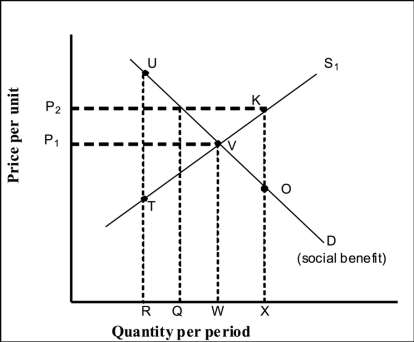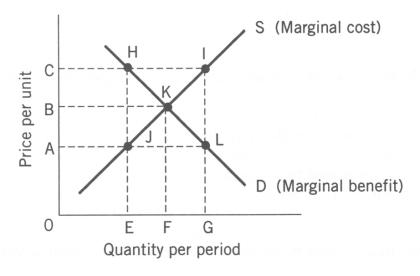Exam 15: Public Finance and Public Choice
Exam 1: Economics: The Study of Choice145 Questions
Exam 2: Confronting Scarcity: Choices in Production198 Questions
Exam 3: Demand and Supply251 Questions
Exam 4: Applications of Supply and Demand113 Questions
Exam 5: Elasticity: a Measure of Response255 Questions
Exam 6: Markets, Maximizers, and Efficiency239 Questions
Exam 7: The Analysis of Consumer Choice244 Questions
Exam 8: Production and Cost227 Questions
Exam 9: Competitive Markets for Goods and Services265 Questions
Exam 10: Monopoly234 Questions
Exam 11: The World of Imperfect Competition237 Questions
Exam 12: Wages and Employment in Perfect Competition189 Questions
Exam 13: Interest Rates and the Markets for Capital and Natural Resources170 Questions
Exam 14: Imperfectly Competitive Markets for Factors of Production183 Questions
Exam 15: Public Finance and Public Choice188 Questions
Exam 16: Antitrust Policy and Business Regulation137 Questions
Exam 17: International Trade186 Questions
Exam 18: The Economics of the Environment148 Questions
Exam 19: Inequality, Poverty, and Discrimination140 Questions
Select questions type
Evidence suggests that, taken collectively, federal taxes in the U.S.economy are:
(Multiple Choice)
4.9/5  (33)
(33)
Taxes paid on the wages received from a job would fall into the category of:
(Multiple Choice)
4.9/5  (42)
(42)
Use the following to answer question(s): Correcting for Market Failure: A Public Good
 -(Exhibit: Correcting for Market Failure: A Public Good) A private market produces R units of output of a public good.If the government intervenes to provide the efficient level of a public good, the net gain will be:
-(Exhibit: Correcting for Market Failure: A Public Good) A private market produces R units of output of a public good.If the government intervenes to provide the efficient level of a public good, the net gain will be:
(Multiple Choice)
4.8/5  (33)
(33)
Use the following to answer question(s): Market Failure
 -(Exhibit: Market Failure) If the market produces quantity F, then:
-(Exhibit: Market Failure) If the market produces quantity F, then:
(Multiple Choice)
4.9/5  (35)
(35)
An example of a tax based on benefits received is the _______ tax.
(Multiple Choice)
4.9/5  (40)
(40)
As a percentage of GDP, government purchases in the United States have increased significantly in the past four decades, but government expenditures have been relatively constant.
(True/False)
4.9/5  (41)
(41)
It may be rational to be ignorant about an issue if the costs of being educated about it outweigh the benefits.
(True/False)
4.8/5  (42)
(42)
Showing 181 - 188 of 188
Filters
- Essay(0)
- Multiple Choice(0)
- Short Answer(0)
- True False(0)
- Matching(0)